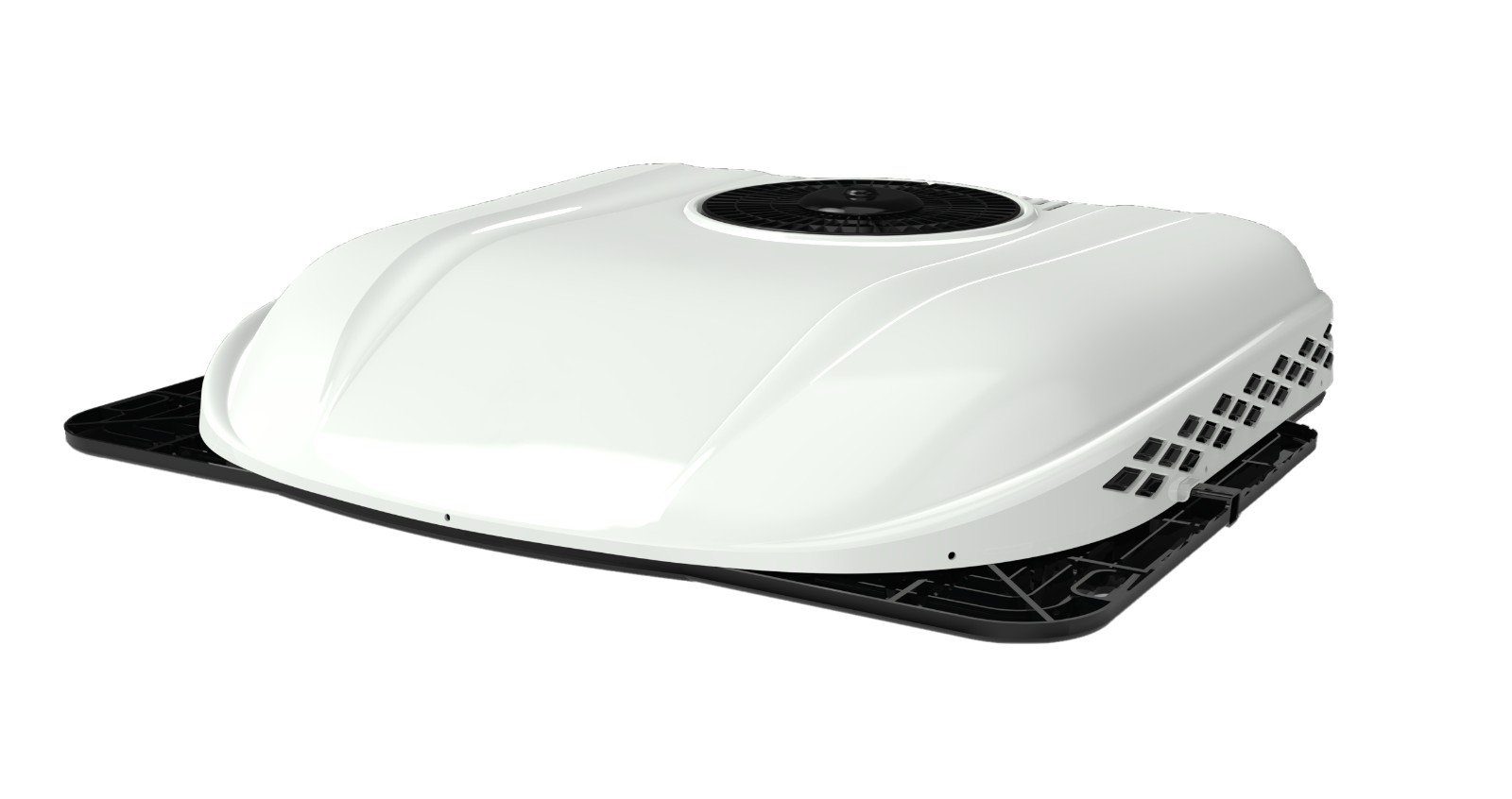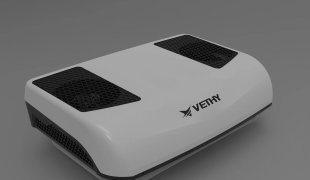Selecting a Parking Air Conditioner for Commercial Vehicles
May 09, 2024

Table of Contents
Cool Comfort for Commercial Fleets
Selecting a Parking Air Conditioner for Commercial Vehicles: A Comprehensive Guide
Parking air conditioners play a crucial role in maintaining a comfortable and safe environment for drivers during rest periods. With the increasing demand for commercial vehicles, the selection of an appropriate parking air conditioner has become paramount. This guide provides a comprehensive overview of the key factors to consider when choosing a parking air conditioner for commercial vehicles, ensuring optimal performance and driver satisfaction.
Benefits of Installing a Parking Air Conditioner in a Commercial Vehicle
**Selecting a Parking Air Conditioner for Commercial Vehicles**
Installing a parking air conditioner in a commercial vehicle offers numerous benefits, enhancing driver comfort, safety, and productivity. When selecting a parking air conditioner, it is crucial to consider several factors to ensure optimal performance and meet specific vehicle requirements.
**Cooling Capacity:** Determine the cooling capacity required based on the vehicle's size, insulation, and expected ambient temperatures. A higher cooling capacity will provide more effective cooling in extreme heat.
**Power Source:** Choose a parking air conditioner that is compatible with the vehicle's electrical system. Options include 12-volt DC, 24-volt DC, or 120-volt AC power sources.
**Mounting Type:** Consider the available mounting space and the desired location of the air conditioner. Roof-mounted units are common, but under-dash or side-mounted options may be suitable for certain vehicles.
**Noise Level:** Select a parking air conditioner with a low noise level to minimize distractions for the driver and passengers.
**Energy Efficiency:** Look for energy-efficient models that consume less power, reducing fuel consumption and operating costs.
**Durability:** Choose a parking air conditioner that is built to withstand the rigors of commercial vehicle use, including vibrations, extreme temperatures, and potential impacts.
**Additional Features:** Consider additional features such as remote control, programmable timers, and temperature sensors to enhance convenience and comfort.
**Installation:** Ensure that the parking air conditioner is professionally installed by a qualified technician to guarantee proper operation and safety.
**Maintenance:** Regular maintenance is essential to ensure optimal performance and longevity. Follow the manufacturer's recommended maintenance schedule, including cleaning filters, checking refrigerant levels, and inspecting electrical connections.
By carefully considering these factors, you can select a parking air conditioner that meets the specific needs of your commercial vehicle, providing a comfortable and productive work environment for drivers.
Types of Parking Air Conditioners for Commercial Vehicles
**Selecting a Parking Air Conditioner for Commercial Vehicles**
When selecting a parking air conditioner for commercial vehicles, it is crucial to consider the specific needs and requirements of the vehicle and its operation. Various types of parking air conditioners are available, each with its own advantages and disadvantages.
**Rooftop Units**
Rooftop units are mounted on the roof of the vehicle and are typically the most common type of parking air conditioner. They offer a high cooling capacity and are suitable for larger vehicles such as buses and trucks. However, they can be more expensive and require professional installation.
**Under-Dash Units**
Under-dash units are installed beneath the dashboard of the vehicle. They are compact and less expensive than rooftop units, making them a good option for smaller vehicles such as vans and pickup trucks. However, they have a lower cooling capacity and may not be suitable for extended periods of use.
**Split Systems**
Split systems consist of an outdoor unit and an indoor unit. The outdoor unit is mounted on the exterior of the vehicle, while the indoor unit is installed inside the cab. Split systems offer a high cooling capacity and are suitable for larger vehicles. They are also more expensive and require professional installation.
**Battery-Powered Units**
Battery-powered units are powered by a rechargeable battery and do not require a connection to the vehicle's electrical system. They are portable and can be used in any location, making them ideal for vehicles that are frequently parked in remote areas. However, they have a limited runtime and require regular charging.
**Factors to Consider**
When selecting a parking air conditioner, consider the following factors:
* **Cooling Capacity:** Determine the cooling capacity required based on the size of the vehicle and the ambient temperature.
* **Power Source:** Choose a unit that is compatible with the vehicle's electrical system or consider a battery-powered option for flexibility.
* **Installation:** Consider the cost and complexity of installation, especially for rooftop and split systems.
* **Noise Level:** Select a unit with a low noise level to minimize disturbance during rest periods.
* **Durability:** Choose a unit that is designed to withstand the rigors of commercial vehicle operation.
By carefully considering these factors, you can select the most appropriate parking air conditioner for your commercial vehicle, ensuring a comfortable and productive work environment for your drivers.
Factors to Consider When Choosing a Parking Air Conditioner for Commercial Vehicles
**Selecting a Parking Air Conditioner for Commercial Vehicles**
When selecting a parking air conditioner for commercial vehicles, several factors must be considered to ensure optimal performance and comfort.
**Cooling Capacity:** Determine the cooling capacity required based on the vehicle's size, insulation, and expected ambient temperatures. A higher cooling capacity is necessary for larger vehicles or those operating in extreme heat.
**Power Source:** Consider the available power source in the vehicle. Most parking air conditioners operate on either 12V or 24V DC power, while some models offer dual-voltage compatibility. Ensure the unit is compatible with the vehicle's electrical system.
**Installation:** Assess the available space for installation and the ease of mounting the unit. Some models require roof-mounted installation, while others can be installed on the side or rear of the vehicle. Consider the accessibility of the unit for maintenance and repairs.
**Noise Level:** Noise can be a significant factor for drivers spending extended periods in the vehicle. Choose a unit with a low noise level to minimize distractions and ensure a comfortable environment.
**Energy Efficiency:** Energy efficiency is crucial for reducing fuel consumption and operating costs. Look for units with high energy efficiency ratings, such as those certified by the Environmental Protection Agency (EPA).
**Durability:** Commercial vehicles endure harsh conditions, so the parking air conditioner should be durable and withstand extreme temperatures, vibrations, and road hazards. Consider units with robust construction and corrosion-resistant materials.
**Features:** Additional features can enhance the functionality and comfort of the unit. These may include remote control, programmable timers, and temperature sensors to maintain a consistent temperature.
**Warranty:** A comprehensive warranty provides peace of mind and protects against unexpected repairs. Choose a unit with a long warranty period to ensure coverage for potential issues.
**Professional Installation:** It is highly recommended to have the parking air conditioner professionally installed by a qualified technician. This ensures proper installation, optimal performance, and adherence to safety regulations.
By carefully considering these factors, you can select a parking air conditioner that meets the specific needs of your commercial vehicle, providing a comfortable and productive environment for drivers.
Impact on Driver Health and Safety
**Selecting a Parking Air Conditioner for Commercial Vehicles: Impact on Driver Health and Safety**
Ensuring the well-being of commercial vehicle drivers is paramount for both their safety and the efficiency of transportation operations. One crucial aspect of driver health and safety is maintaining a comfortable and temperate environment within the vehicle, especially during extended periods of parking. This is where parking air conditioners play a vital role.
Extreme temperatures, whether hot or cold, can have detrimental effects on driver health. Prolonged exposure to heat can lead to heat exhaustion, heat stroke, and dehydration, impairing cognitive function and reaction times. Conversely, excessive cold can cause hypothermia, frostbite, and reduced dexterity, also posing significant safety risks.
Parking air conditioners provide a solution to these challenges by regulating the temperature inside the vehicle, creating a comfortable and safe environment for drivers. They operate independently of the vehicle's engine, allowing drivers to maintain a comfortable temperature even when the vehicle is parked and the engine is turned off.
When selecting a parking air conditioner, several factors should be considered to ensure optimal performance and driver comfort. The size of the vehicle and the number of occupants will determine the cooling capacity required. Additionally, the climate in which the vehicle will be operating should be taken into account, as different models are designed for specific temperature ranges.
Energy efficiency is another important consideration. Parking air conditioners consume electricity, so choosing a model with a high energy efficiency rating will minimize operating costs and reduce the environmental impact.
Furthermore, the noise level of the air conditioner should be considered. Excessive noise can be distracting and disruptive to drivers, especially during rest periods. Look for models that operate quietly, allowing drivers to rest comfortably.
Finally, the durability and reliability of the air conditioner are crucial. Commercial vehicles often operate in harsh conditions, so choosing a model that is built to withstand extreme temperatures and vibrations is essential.
By carefully considering these factors, fleet managers and drivers can select a parking air conditioner that effectively maintains a comfortable and safe environment within the vehicle, promoting driver health and safety while enhancing overall productivity and efficiency.
Product Comparisons
**Selecting a Parking Air Conditioner for Commercial Vehicles**
When choosing a parking air conditioner for commercial vehicles, several factors must be considered to ensure optimal performance and comfort. The size of the vehicle, the climate it will operate in, and the desired cooling capacity are all crucial factors to take into account.
**Vehicle Size and Cooling Capacity**
The size of the vehicle directly impacts the cooling capacity required. Larger vehicles, such as semi-trucks and buses, require more powerful air conditioners to effectively cool the entire cabin. The cooling capacity is measured in British Thermal Units (BTUs) per hour, and it should be sufficient to maintain a comfortable temperature even in extreme heat.
**Climate Considerations**
The climate in which the vehicle will operate plays a significant role in selecting the appropriate air conditioner. In hot and humid climates, a unit with a higher cooling capacity and dehumidification capabilities is necessary. Conversely, in milder climates, a less powerful unit may suffice.
**Power Source and Installation**
Parking air conditioners typically operate on either 12-volt or 24-volt power, depending on the vehicle's electrical system. The installation process can vary depending on the type of air conditioner and the vehicle's configuration. Some units are designed for rooftop mounting, while others can be installed under the dash or in the sleeper compartment.
**Additional Features**
Beyond cooling capacity and power source, there are several additional features to consider when selecting a parking air conditioner. These include:
* **Remote control:** Allows for convenient operation from inside the vehicle.
* **Timer:** Enables pre-cooling the cabin before entering.
* **Quiet operation:** Minimizes noise levels for a more comfortable sleeping environment.
* **Energy efficiency:** Reduces fuel consumption and operating costs.
**Maintenance and Warranty**
Regular maintenance is essential to ensure the longevity and performance of a parking air conditioner. This includes cleaning the filters, checking the refrigerant levels, and inspecting the electrical connections. Additionally, a comprehensive warranty provides peace of mind and protects against unexpected repairs.
**Conclusion**
Selecting the right parking air conditioner for commercial vehicles requires careful consideration of the vehicle's size, climate, cooling capacity, power source, and additional features. By taking these factors into account, fleet managers and drivers can ensure a comfortable and productive work environment, even during the hottest months of the year.
Maintenance Tips
**Selecting a Parking Air Conditioner for Commercial Vehicles**
Maintaining a comfortable temperature inside commercial vehicles during extended parking periods is crucial for driver well-being and vehicle performance. Parking air conditioners provide a reliable solution to this challenge, ensuring a cool and comfortable environment for drivers during rest breaks or overnight stays.
When selecting a parking air conditioner, several factors must be considered to ensure optimal performance and efficiency. Firstly, determine the size of the vehicle's cabin. Larger cabins require more powerful air conditioners to effectively cool the space.
Next, consider the climate in which the vehicle will be operating. Extreme temperatures demand air conditioners with higher cooling capacities. Additionally, the type of insulation in the vehicle's cabin plays a role in determining the required cooling power.
The power source is another important consideration. Parking air conditioners can be powered by the vehicle's battery or an auxiliary power unit (APU). Battery-powered units are more cost-effective but have limited runtime. APU-powered units provide longer runtime but require additional maintenance.
The noise level of the air conditioner is also a factor to consider. Some units operate more quietly than others, which can be beneficial for drivers who need to rest or sleep in the vehicle.
Finally, consider the installation process. Some air conditioners require professional installation, while others can be installed by the driver. If you lack the necessary skills or tools, it is advisable to seek professional assistance.
By carefully considering these factors, you can select a parking air conditioner that meets the specific needs of your commercial vehicle. A well-chosen air conditioner will provide a comfortable and productive environment for drivers, ensuring their well-being and the efficient operation of the vehicle.
Key Features to Consider
**Selecting a Parking Air Conditioner for Commercial Vehicles: Key Features to Consider**
When selecting a parking air conditioner for commercial vehicles, it is crucial to consider several key features to ensure optimal performance and comfort.
**Cooling Capacity:** The cooling capacity of an air conditioner is measured in British Thermal Units (BTUs) per hour. The larger the vehicle, the higher the cooling capacity required. Factors such as the number of occupants, the size of the cabin, and the climate should be taken into account.
**Power Source:** Parking air conditioners can be powered by either the vehicle's battery or an auxiliary power unit (APU). Battery-powered units are more affordable and easier to install, but they may drain the battery if used for extended periods. APU-powered units provide more consistent cooling but require additional maintenance and installation costs.
**Noise Level:** Noise can be a significant factor, especially for drivers who spend long hours in their vehicles. Look for air conditioners with low noise levels to minimize distractions and improve comfort.
**Energy Efficiency:** Energy efficiency is important for reducing fuel consumption and operating costs. Consider units with high Energy Efficiency Ratios (EERs) or Coefficient of Performance (COPs) to maximize cooling while minimizing energy usage.
**Durability and Reliability:** Commercial vehicles operate in demanding conditions, so it is essential to choose an air conditioner that is durable and reliable. Look for units with robust construction, corrosion-resistant materials, and a proven track record of performance.
**Ease of Installation and Maintenance:** Installation and maintenance should be considered when selecting an air conditioner. Choose units that are easy to install and maintain, reducing downtime and labor costs.
**Additional Features:** Some air conditioners offer additional features such as remote control, programmable timers, and air purification systems. These features can enhance comfort and convenience, but they may also increase the cost.
**Warranty and Support:** A comprehensive warranty and reliable support are important for peace of mind. Look for manufacturers that offer extended warranties and provide prompt and efficient customer service.
By carefully considering these key features, you can select a parking air conditioner that meets the specific needs of your commercial vehicles, ensuring optimal cooling, comfort, and reliability.
Impact of refrigerant
**Selecting a Parking Air Conditioner for Commercial Vehicles: Impact of Refrigerant**
When choosing a parking air conditioner for commercial vehicles, the type of refrigerant used is a crucial consideration. Refrigerants play a vital role in the cooling process and have significant environmental and performance implications.
**Types of Refrigerants**
There are two main types of refrigerants used in parking air conditioners:
* **Hydrofluorocarbons (HFCs):** These refrigerants have been widely used in the past but are being phased out due to their high global warming potential (GWP).
* **Hydrofluoroolefins (HFOs):** These refrigerants have a significantly lower GWP than HFCs and are becoming increasingly popular as a more environmentally friendly option.
**Environmental Impact**
The GWP of a refrigerant measures its contribution to global warming. HFCs have high GWPs, meaning they trap heat in the atmosphere for a long time. HFOs, on the other hand, have much lower GWPs, reducing their environmental impact.
**Performance**
The type of refrigerant also affects the performance of the air conditioner. HFOs have a higher cooling capacity than HFCs, which means they can cool the vehicle more effectively. Additionally, HFOs have a lower boiling point, allowing the air conditioner to operate at lower pressures, reducing energy consumption.
**Regulations**
Many countries have regulations in place to limit the use of HFCs due to their environmental impact. These regulations may restrict the availability of HFC-based air conditioners or impose additional costs on their use.
**Choosing the Right Refrigerant**
When selecting a parking air conditioner, it is essential to consider the following factors:
* **Environmental impact:** Choose a refrigerant with a low GWP to minimize your carbon footprint.
* **Performance:** Opt for a refrigerant with a high cooling capacity and low boiling point for optimal cooling performance.
* **Regulations:** Ensure that the refrigerant you choose complies with applicable regulations in your jurisdiction.
By carefully considering the impact of refrigerant, you can select a parking air conditioner that meets your cooling needs while minimizing environmental impact and complying with regulations.**Conclusion**
Selecting the appropriate parking air conditioner for commercial vehicles requires careful consideration of factors such as vehicle size, climate conditions, and desired cooling capacity. By evaluating these factors and consulting with industry experts, fleet managers can make informed decisions that ensure optimal comfort and productivity for their drivers. Advanced technologies, such as variable-speed compressors and inverter-based systems, offer improved efficiency and reduced operating costs. By investing in high-quality parking air conditioners, commercial vehicle operators can enhance driver well-being, reduce fatigue, and increase overall fleet efficiency.





